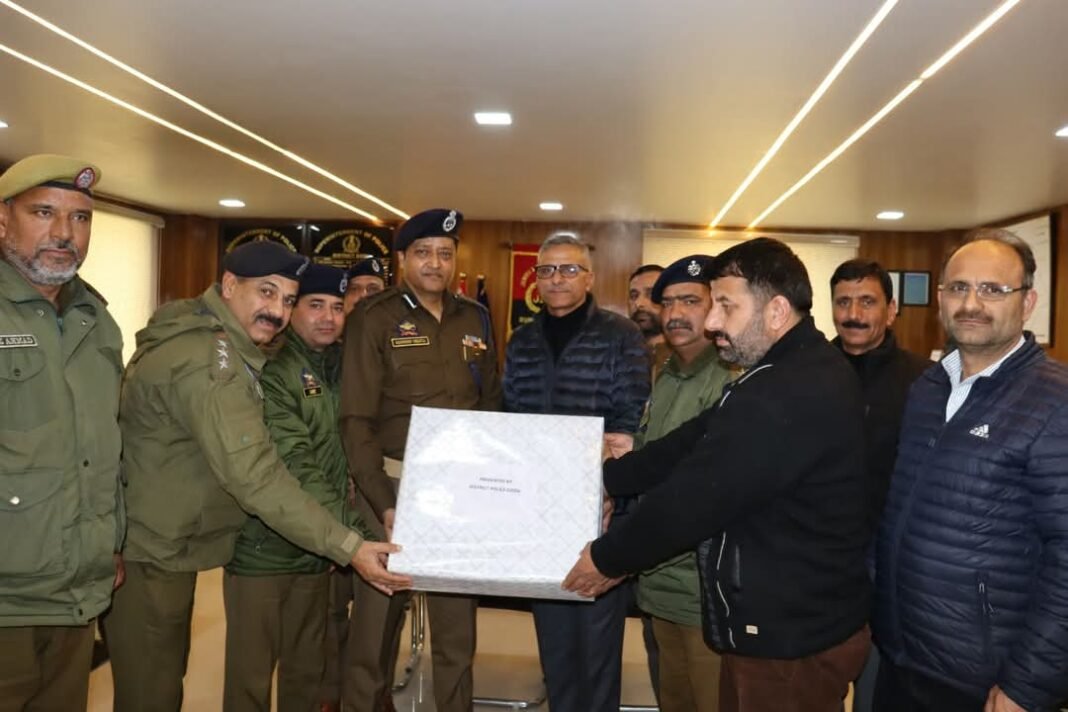Opponents crossed all limits to defame the party, falsely labelling it as a proxy of the right-wing BJP; Farooq Andrabi
Diplomat Dedk
Srinagar, DD,Renowned British author George Orwell once said, “Political language is designed to make lies sound truthful and murder respectable, and to give an appearance of solidity to pure wind.”
Ironically, Jammu and Kashmir’s traditional political parties have long mastered this art—using deceptive rhetoric to manipulate public perception for their own benefit. Over the past seven decades, these parties and their leaders have become adept at distorting facts and presenting falsehoods as truth, enabling them to suppress dissent and mislead the people.
Their latest target was the Jammu and Kashmir Apni Party (JKAP), led by Syed Mohammad Altaf Bukhari. The party’s defeat in the assembly elections can largely be attributed to a well-orchestrated propaganda campaign by its political rivals, who went to great lengths to tarnish its image, falsely branding it as a proxy of the right-wing Bharatiya Janata Party (BJP).
The truth, however, tells a different story: In the wake of the abrogation of Article 370 and the bifurcation of Jammu and Kashmir on August 5, 2019, a group of leaders across the region came together to seek a way forward. At that time, Jammu and Kashmir was engulfed in turmoil—businesses were shut down, streets were deserted, and thousands of people were incarcerated.
Amidst this turmoil, a group of like-minded leaders, including former legislators, ministers, and political stalwarts, came together to strategize a constructive political response.
Ultimately, they decided to establish a political party aimed at negotiating with New Delhi, particularly to safeguard the exclusive rights of J&K residents over land and jobs. Thus, the Jammu and Kashmir Apni Party was officially formed on March 8, 2020—roughly seven months after the events of August 5, 2019.
A few days later, on March 14, a 24-member delegation of Apni Party leaders, led by Syed Mohammad Altaf Bukhari, met with Prime Minister Narendra Modi. The following day, they met Union Home Minister Amit Shah. During these meetings, the Apni Party leadership successfully persuaded the central government to maintain J&K residents’ exclusive rights over agricultural land and government jobs in the Union Territory. In response, the central government issued a notification ensuring these protections. This achievement became one of the defining contributions of the newly formed Apni Party in the post-Article 370 era.
It is crucial to note that the Apni Party did not exist on August 5, 2019, while the region’s established political parties, such as the National Conference (NC) and the People’s Democratic Party (PDP), were very much active. These parties had representation in Parliament but failed to take any meaningful action to oppose the revocation of J&K’s special status. Their MPs did not even bother to resign in protest. Worse, following the abrogation, their leaders remained silent, neither voicing strong opposition nor organising resistance.
Moreover, questions remain about the nature of the meeting between NC leaders Farooq Abdullah, Omar Abdullah, and MP Hasnain Masoodi with Prime Minister Modi just days before Parliament passed the Jammu and Kashmir Reorganisation Act. The details of this meeting remain a mystery, leading to speculation that the NC leadership may have tacitly approved the move.
Did they tacitly agree to the abrogation of Article 370? It is plausible that NC leaders granted implicit approval, just as the party had previously done through the 1975 accord, which endorsed the central government’s gradual erosion of J&K’s special status between 1953 and 1974.
Political decisions of such magnitude are rarely taken without the consent of local leadership. Remember, Mufti Mohammad Sayeed, despite his assurances to the people of Kashmir that the PDP would keep the BJP out of power, ultimately invited the BJP to form a coalition government in J&K after the 2014 elections. The PDP, which secured 28 seats, could have allied with the NC (15 seats) and Congress (12 seats). Instead, it chose the BJP, indicating a clear alignment with New Delhi’s directives, or a desire to please their master in Delhi—precisely, the BJP. With this BJP made inroads in J&K’s power corridors for the first time in history.
There is ample evidence to suggest that the major regional parties have consistently misled the people while serving the interests of the central government. Despite this history, they successfully branded the Apni Party as a BJP proxy, a narrative that significantly damaged its electoral prospects.
Yet, the Apni Party’s political journey is far from over. While propaganda may have dented its immediate prospects, its pragmatic and people-centric policies may still stand the test of time. Unlike traditional parties that have historically prioritized loyalty to New Delhi over the well-being of J&K’s residents, the Apni Party remains focused on securing tangible benefits for the people. Contrary to the labels imposed by its rivals, the Apni Party’s mission has always been rooted in the interests of the people, striving to safeguard their rights and secure their future.
The party now faces the challenge of fighting against false stories spread by its opponents and winning back the trust of the public. Over time, Apni Party aims to break the cycle of betrayal and deception that has long plagued Kashmir’s politics.
(Farooq Andrabi is the media advisor of the Apni Party)
HIGHLIGHTS:
Apni Party’s defeat in the assembly elections can largely be attributed to a well-orchestrated propaganda campaign by its political rivals, who went to great lengths to tarnish its image, falsely branding it as a proxy of the right-wing BJP.
The party now faces the challenge of fighting against false stories spread by its opponents and winning back the trust of the people.





